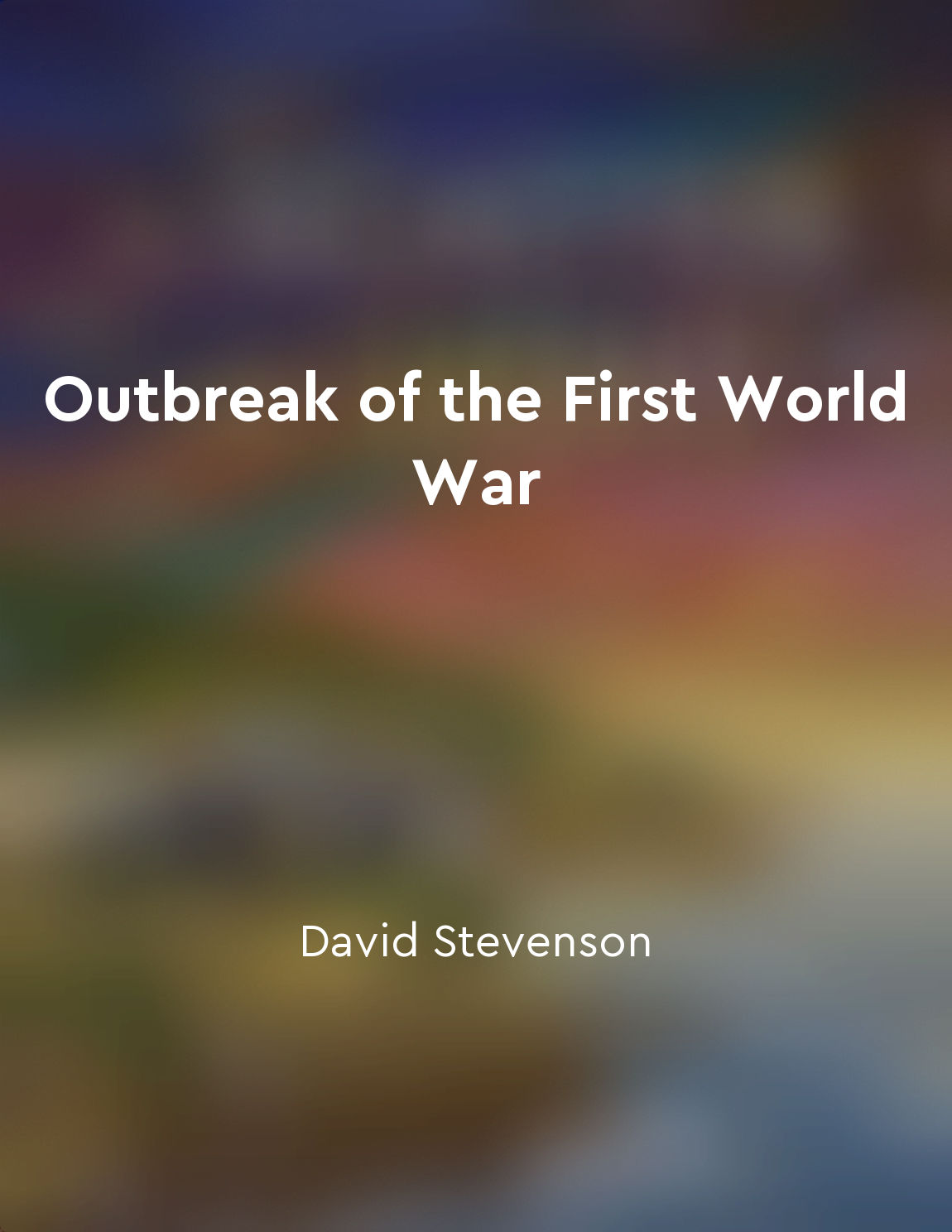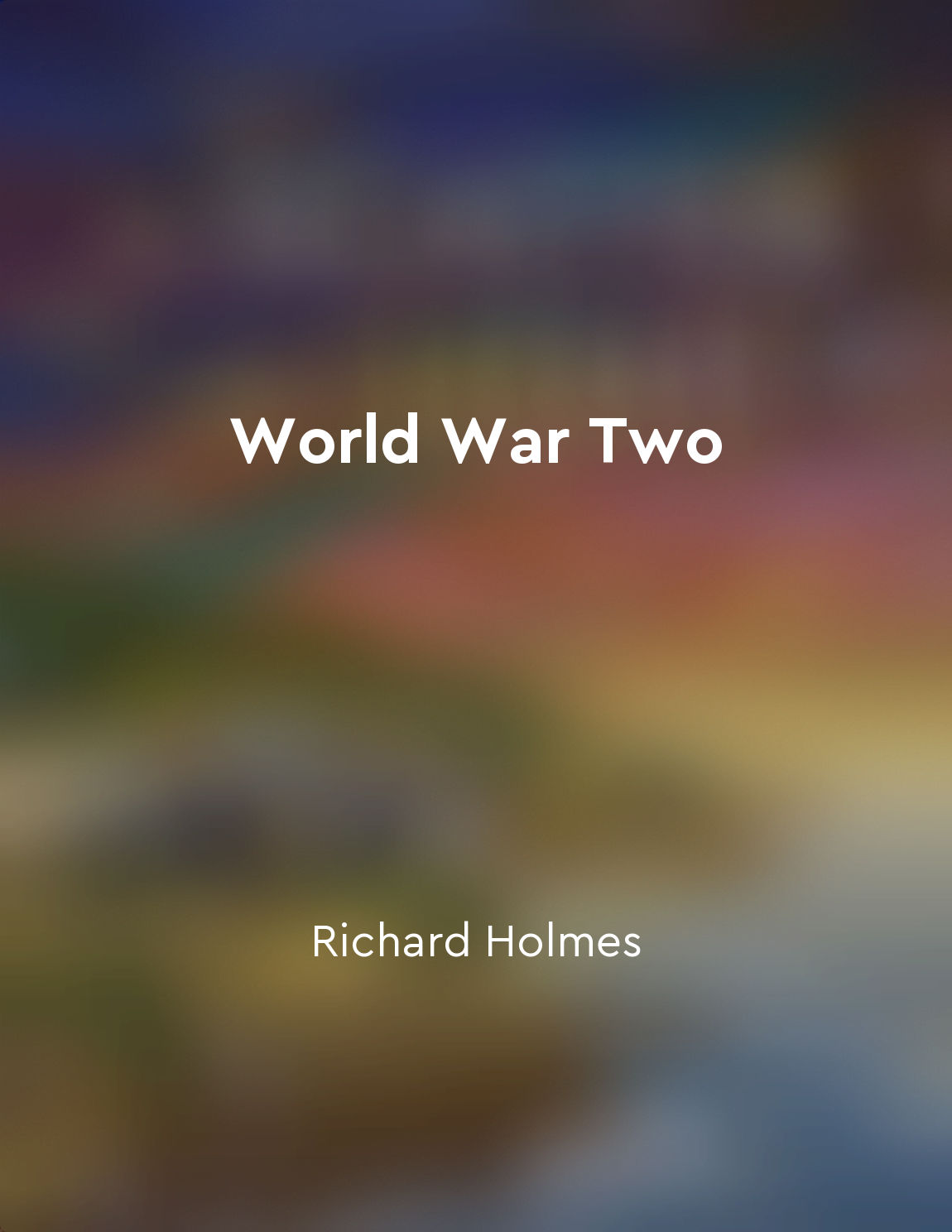Lingering effects of war from "summary" of Outbreak of the First World War by David Stevenson
The aftermath of war is often marked by long-lasting consequences that continue to impact societies, economies, and individuals long after the guns fall silent. The carnage and destruction wrought by conflict can leave scars that are not easily healed. The First World War was no exception, as its lingering effects would shape the course of history for decades to come. One of the most immediate and tangible consequences of the war was the staggering loss of life. Millions of soldiers and civilians perished in the conflict, leaving behind grieving families and shattered communities. The physical devastation caused by the war was also immense, with cities reduced to rubble, farmland ravaged, and infrastructure in ruins. The war had not only claimed lives but also destroyed livelihoods and upended social structures. The economic impact of the war was equally profound. The cost of the conflict was staggering, draining the treasuries of belligerent nations and saddling them with crippling debts. The war also disrupted global trade and commerce, leading to widespread shortages and inflation. The economic dislocation caused by the war would have far-reaching consequences, contributing to the Great Depression and fueling political instability in the interwar years. The political map of Europe was redrawn in the wake of the war, with empires collapsing and new nations emerging from the ashes of old ones. The war had profound implications for the balance of power in Europe, setting the stage for future conflicts and diplomatic rivalries. The peace settlement that followed the war, enshrined in the Treaty of Versailles, sowed the seeds of resentment and instability that would eventually lead to the outbreak of the Second World War. The psychological toll of the war was also significant, as survivors grappled with trauma, grief, and survivor's guilt. The war had fundamentally altered the way people thought about conflict, leading to a sense of disillusionment and cynicism about the ideals of patriotism and heroism. The cultural impact of the war was also profound, giving rise to a new wave of literature, art, and music that reflected the disillusionment and despair of the post-war era.- The lingering effects of the First World War were far-reaching and profound, shaping the course of history in the 20th century. The war left a legacy of death and destruction, economic turmoil, political upheaval, and psychological trauma that would continue to haunt societies long after the guns fell silent. The scars of the war would serve as a grim reminder of the human cost of conflict and the imperative
Similar Posts
Psychological factors play a role in the perpetuation of violence
The perpetuation of violence can be influenced by various psychological factors. One such factor is the human tendency to confo...

Health and medicine improved living conditions
Health and medicine have played a crucial role in improving living conditions for human beings throughout history. With advance...

Involvement of global powers
The involvement of global powers in the outbreak of the First World War was an essential factor in the escalation of the confli...

Holocaust atrocities revealed
The horrors of the Holocaust were finally brought to light as Allied troops liberated concentration camps across Europe. The fu...
July Crisis deepens the brinkmanship
The July Crisis marked a turning point in the lead-up to the outbreak of the First World War. As tensions escalated between the...
Tensions escalated rapidly, leading to a global conflict
In the summer of 1914, the tensions among the European powers were like "a train of gunpowder traveling towards a spark." The a...

